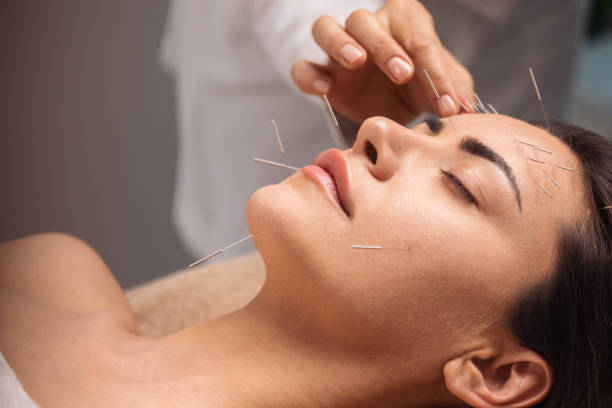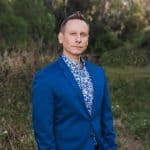As complementary therapies go, acupuncture is one of the most well-respected and researched. Consequently, it enjoys wide acceptance in conventional medical circles and is now routinely recommended by all manner of doctors, nurses, and other health professionals. A recent WHO report found it effective for a wide range of symptoms and diseases, such as insomnia, depression, acne, lower back pain, and sciatica, along with many others.
Exploring Acupuncture: East Meets West in Healthcare
While the theories and language of Traditional Chinese Medicine may not be accepted by Western doctors, there is little doubt that acupuncture works and practitioners are relatively easy to find. There are 2 main types of acupuncture generally practiced in the West today, with subdivisions in each. These are the Traditional Schools and the so-called Medical Acupuncture.
The 1st is the holistic, oriental therapy that comes from China, the 2nd is a Westernised version used purely on a physical level. Medical acupuncture is normally practiced by Western medical practitioners such as GPs, physiotherapists, or nurses. It is used mainly for pain relief and practitioners have only the bare minimum of training. This is in contrast with the Traditional approach which takes years of training and follows the Chinese medical system and works on physical, mental, and emotional levels.
Diverse Schools of Traditional Acupuncture: A Global Perspective
Traditional acupuncture is subdivided into a number of schools. The most popular is TCM (Traditional Chinese Medicine) which follows the way acupuncture is practiced in China. Other schools include 5-elements which is said to focus more on psychology and spiritual problems, and also Korean and Japanese acupuncture which are similar to TCM but with slightly different theoretical underpinnings.
How does it work?
The theory of Chinese medicine is based on Qi, the life force that flows through all things. Imbalances in bodily systems cause a disruption to this flow, which can be remedied by the insertion of tiny metal needles into specific parts of the body. Acupuncturists use a highly details method of diagnosis in order to understand the health of the whole person and thus calculate the size and type of Qi disharmony.
It can treat not only physical conditions but also psychological and emotional – In Chinese medicine these are all seen as interrelated. Often, chronic conditions that respond poorly to conventional treatment are suitable for this holistic approach as it treats the underlying cause of the condition rather than just suppressing symptoms.

History of Acupuncture
Acupuncture has a long but uncertain history. It was developed in ancient China at least 2000 years ago, possibly much earlier than that. Certainly, by the 1st or 2nd century BCE Chinese medicine was well developed – the classic text on the subject the new jing was written around this time – a book that is still consulted by practitioners today. Acupuncture continued to develop over thousands of years until the late 19th and early 20th centuries when China was in a period of turmoil. An influx of Western ideas into China, and the cultural and political changes initiated by Chairman Mao lead to traditional medicine becoming almost extinct.
After the 2nd World War, however, China faced a massive health problem, and traditional medicine, including acupuncture, was revived. From the 1950s, Western interest in this traditional healing method grew hugely, fueled by astounding reports of operations performed with only acupuncture anesthesia. It is now widely practiced all over the world.
You may also like to read What Chiropractors Actually Do? Do they Really Help in Pain Management?
Acupuncture vs. Medication: Holistic Healing in Jacksonville
The acupuncture treatment is completely different from medication treatment because in this treatment there is no medicine involved. When a person takes medicine to evaluate his or her pain, the medicine gives instant relief to the patient but it creates many other side effects at the same time, which are much more harmful. We are providing acupuncture treatment in Jacksonville Florida to give long-term relief to our patients.
Jacksonville acupuncture treatment center has value in the eye of its patients just because of its staff and doctors. Jacksonville Chiropractic and Acupuncture will work hard to improve your health and reduce the pain in your body with the help of needles and chiropractic treatments. In the majority of cases, the ratio of avoiding illness and healthiness in people is getting higher day by day. So, we will recommend you visit our clinic for better healthcare facilities.
About Author
Dr. Jeremiah Carlson is a licensed chiropractor serving the Jacksonville community. Dr. Carlson has been improving Jacksonville’s health for over 15 years. As a chiropractor with experience, Dr. Carlson is committed to finding the proper diagnosis while promoting optimal health and well-being of his patients. Following diagnosis he will evaluate for misalignments in the spine and then use chiropractic manipulation to correct them. Correcting spinal misalignments can reduce joint pain, relax spasmed muscles and calm overactive nerves. Dr. Carlson’s approach is to create balance between the joints, muscles and nerves to reduce or eliminate pain.


